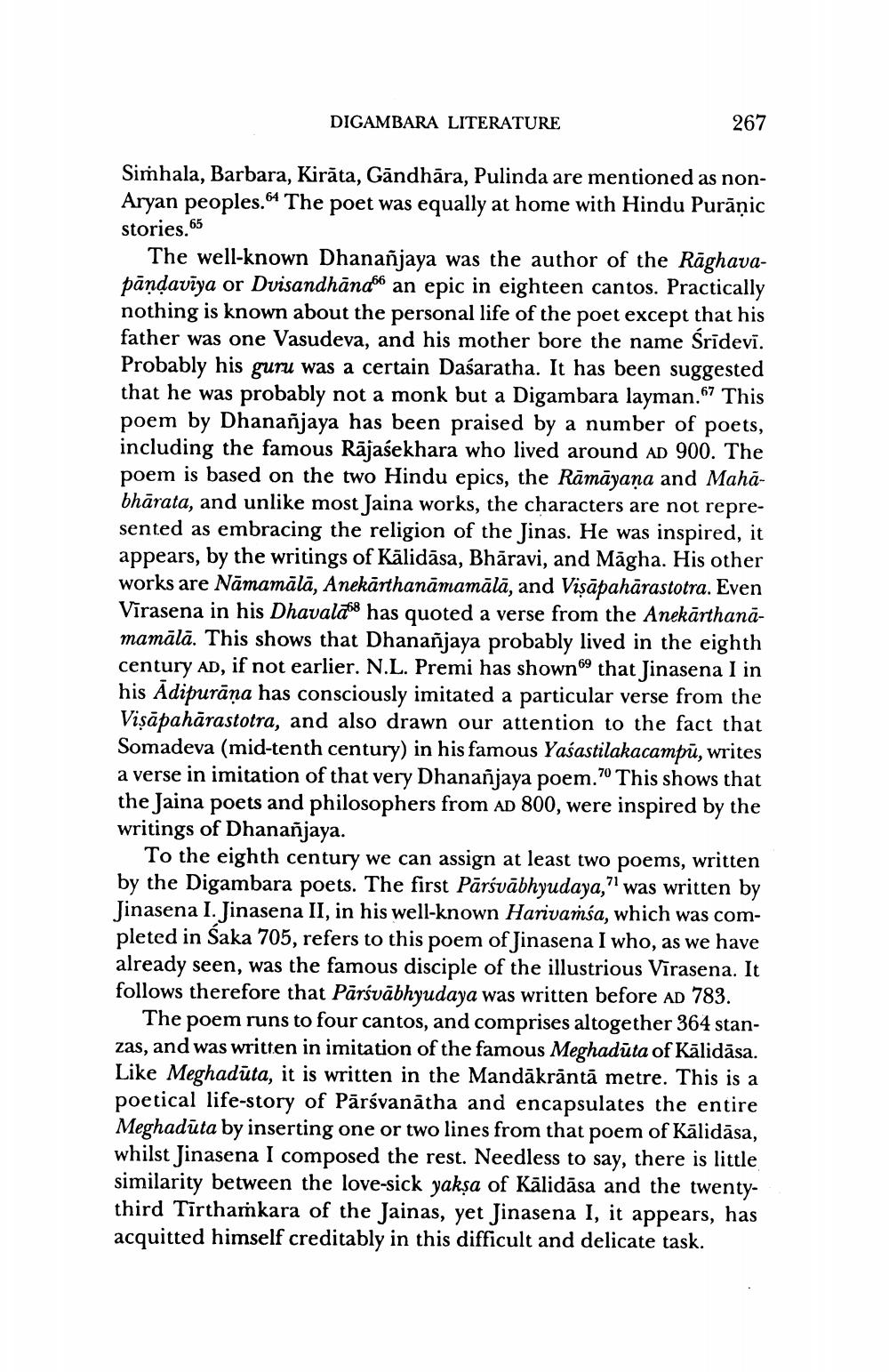________________
DIGAMBARA LITERATURE
267
Simhala, Barbara, Kirāta, Gāndhāra, Pulinda are mentioned as nonAryan peoples. The poet was equally at home with Hindu Purāņic stories.65
The well-known Dhananjaya was the author of the Rāghavapāndavīya or Dvisandhānao an epic in eighteen cantos. Practically nothing is known about the personal life of the poet except that his father was one Vasudeva, and his mother bore the name Sridevi. Probably his guru was a certain Dasaratha. It has been suggested that he was probably not a monk but a Digambara layman.67 This poem by Dhananjaya has been praised by a number of poets, including the famous Rājasekhara who lived around ad 900. The poem is based on the two Hindu epics, the Rāmāyaṇa and Mahābhārata, and unlike most Jaina works, the characters are not represented as embracing the religion of the Jinas. He was inspired, it appears, by the writings of Kālidāsa, Bhāravi, and Māgha. His other works are Nāmamālā, Anekārthanāmamālā, and Visāpahārastotra. Even Vīrasena in his Dhavala68 has quoted a verse from the Anekārthanamamālā. This shows that Dhananjaya probably lived in the eighth century AD, if not earlier. N.L. Premi has shown that Jinasena l in his Ādipurāņa has consciously imitated a particular verse from the Vişāpahārastotra, and also drawn our attention to the fact that Somadeva (mid-tenth century) in his famous Yaśastilakacampū, writes a verse in imitation of that very Dhananjaya poem.This shows that the Jaina poets and philosophers from AD 800, were inspired by the writings of Dhananjaya.
To the eighth century we can assign at least two poems, written by the Digambara poets. The first Pārsvābhyudaya," was written by Jinasena I. Jinasena II, in his well-known Harivamśa, which was completed in Saka 705, refers to this poem of Jinasena I who, as we have already seen, was the famous disciple of the illustrious Vīrasena. It follows therefore that Pārsvābhyudaya was written before AD 783.
The poem runs to four cantos, and comprises altogether 364 stanzas, and was written in imitation of the famous Meghaduta of Kālidāsa. Like Meghadūta, it is written in the Mandākrāntā metre. This is a poetical life-story of Pārsvanātha and encapsulates the entire Meghadūta by inserting one or two lines from that poem of Kālidāsa, whilst Jinasena I composed the rest. Needless to say, there is little similarity between the love-sick yakṣa of Kālidāsa and the twentythird Tīrthamkara of the Jainas, yet Jinasena I, it appears, has acquitted himself creditably in this difficult and delicate task.




